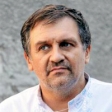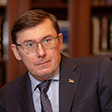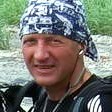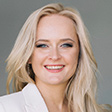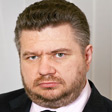Letter of World Intellectuals
Цей текст майже сотні світових інтелектуалів уже друкувався на УП українською
Ось цей текст англійською. Розміщаю його для тих іноземців, які працюють в Україні, у тому числі іноземних журналістів.
The future of Ukraine
The future of Ukraine depends most of all on the Ukrainians themselves. They defended their
democracy and future 10 years ago, during the Orange Revolution, and are standing up for those
values again today. As Europeans grow disenchanted with the idea of a common Europe, people in
Ukraine are fighting for that idea and for their country's place in Europe. Defending Ukraine from the
authoritarian temptations of its corrupt leaders is in the interests of the democratic world.
We cannot afford to turn our back on Ukraine. The new authoritarians in Kyiv should know that there
will be a high price to pay for their repressive policies and for abandoning the European aspirations
of the people. It is not too late for us to change things for the better and prevent Ukraine from
becoming a dictatorship. Passivity in the face of the authoritarian turn in Ukraine and the country's
reintegration into a newly expanding Russian imperial sphere of interests pose a threat to the
European Union's integrity. It is a threat not just to the moral integrity of the Union but possibly to its
internal institutional integrity as well. Alongside the diplomatic and economic measures taken by
individual states and the entire EU, independent democratic initiatives should make efforts to defend
victims of repression, support civil society and strengthen independent media.
The quality of any democracy depends to a great extent on what its citizens know about their
country and the world. In Ukraine, the picture of the world is shaped by the authorities, who control
most of the mass media, and Russian television channels faithful to President Putin. For the sake of
democracy, we must support and strengthen independent and pluralistic media in Ukraine.
We must help strengthen civil society, especially the new initiatives that have arisen around the
Maidan. No matter what the authorities say, the people fighting to keep their country's future open
are not foreign agents – the only ones deserving that name are those pursuing a policy of mass
repression to quash Ukraine's hopes of becoming a European democracy.
The letter has already been signed by:
1. Andrew Arato, Professor of Political and Social Theory, New School for Social Research,
United States
2. Shlomo Avineri, Professor of Political Science at the Hebrew University of Jerusalem, Israel
3. Lluís Bassets, Deputy Director, El País, Spain
4. Zygmunt Bauman, Professor of Sociology, University of Leeds, United Kingdom
5. Gianni Bonvicini, Director of the Institute of International Affairs, Italy
6. José Casanova, Professor of Sociology, Georgetown University, United States
7. Bogusław Chrabota, Editor-In-Chief of Rzeczpospolita daily, Poland
8. Norman Davies, Professor of History, University of London, United Kingdom
9. Aleš Debeljak, Poet and Cultural Critic, Slovenia
10. Tibor Dessewffy, President of the DEMOS Hungary 11. Uffe Ellemann-Jensen, former Foreign Minister, Chairman of the Baltic Development Forum,
Denmark
12. Paolo Flores d'Arcais, Philosopher and Journalist, Editor of MicroMega magazine, Italy
13. Carl Henrik Fredriksson, Editor-In-Chief of Eurozine, Sweden-Austria
14. Ute Frevert, Director of the Center for the History of Emotions at the Max Planck Institute for
Human Development, Germany
15. Timothy Garton Ash, Professor of European Studies, Oxford University, United Kingdom
16. Carlos Gaspar, Chairman of the Portuguese Institute of International Relations (IPRI),
Portugal
17. Carl Gershman, President of the National Endowment for Democracy, United States
18. Carlo Ginzburg, Professor of History of Scuola Normale Superiore di Pisa, Italy
19. André Glucksmann, Philosopher and Writer, France
20. Jeff Goldfarb, Professor of Sociology, New School for Social Research, United States
21. Charles Grant, Director of the Centre for European Reform, United Kingdom
22. Andrea Graziosi, Professor of History, University of Naples Federico II, Italy
23. Tomáš Halík, Professor of Sociology, Charles University Prague, Czech Republic
24. Pierre Hassner, Director of the Fondation nationale des sciences politiques, France
25. Agnieszka Holland, Film Director and Screenwriter, Poland
26. William Hunt, Professor of History, St. Lawrence University, United States
27. Suat Kiniklioglu, Executive Director of the Centre for Strategic Communication, Turkey
28. Ira Katznelson, Professor of Political Science and History, Columbia University, United States
29. János Kis, Professor of Philosophy and Political Science, Central European University,
Hungary
30. Zenon E. Kohut, Professor of History, Peter Jacyk Centre for Ukrainian Research, University of
Alberta, Canada
31. David Koranyi, Diplomat, Former Undersecretary of State, Deputy Director Dinu Patriciu
Eurasia Center, Hungary-United States
32. Bernard Kouchner, Former Foreign Minister, France
33. Ivan Krastev, Chairman, Centre for Liberal Strategies, Bulgaria
34. Marcin Król, Professor of History of Ideas, Warsaw University, Poland
35. Mark Leonard, Director of the European Council on Foreign Relations, United Kingdom
36. Sonja Licht, President of Belgrade Fund for Political Excellence, Serbia
37. Tomasz Lis, Editor-In-Chief of Newsweek Polska weekly, Poland
38. Adam Michnik, Editor-In-Chief of Gazeta Wyborcza daily, Poland 39. Marie Mendras, Directeur de recherche, the Centre National de la Recherche Scientifique
(CNRS), France
40. Dominique Moïsi, Conseiller spécial de Institut français de relations internationales (l'IFRI),
France
41. Michael Moser, Professor of Slavic Studies, University of Vienna, Austria
42. Alexander J. Motyl, Professor of Political Science, Rutgers University-Newark, United States
43. Piotr Mucharski, Editor-In-Chief of Tygodnik Powszechny weekly, Poland
44. Aryeh Neier, President Emeritus of the Open Society Foundations, United States
45. Kalypso Nicolaïdis, Professor of International Relations, University of Oxford, United
Kingdom
46. Ton Nijhuis, Director of the Duitsland Instituut, The Netherlands
47. Zbigniew Nosowski, Editor-In-Chief of Więź magazine, Poland
48. Claus Offe, Professor of Political Sociology, Hertie School of Governance, Germany
49. Andrzej Olechowski, Former Foreign Minister, Poland
50. Monika Olejnik, Journalist, Poland
51. Andrés Ortega, Author and Journalist, Former Director of Policy Planning, Office of the
Spanish Prime Minister, Spain
52. Ana Palacio, Former Foreign Minister, Former Vice President and General Counsel of the
World Bank Group, Spain
53. Šimon Pánek, Director of the People In Need, Czech Republic
54. Anton Pelinka, Professor of Political Science, Central European University, Austria-Hungary
55. Víctor Pérez-Díaz, President of Analistas Socio-Políticos (ASP), Spain
56. Marc F. Plattner, Editor, Journal of Democracy, United States
57. Ruprecht Polenz, Former Chairman of the Committee on Foreign Affairs of the German
Bundestag, Germany
58. Adam Pomorski, President of the Polish PEN Club, Poland
59. László Rajk jr., Architect, Designer and Political Activist, Hungary
60. Joachim Rogall, Executive Director of the Robert Bosch Stiftung, Germany
61. Adam Daniel Rotfeld, Former Foreign Minister, Poland
62. Jacques Rupnik, Directeur de recherche, Sciences Po, France
63. Daniel Sachs, Member of the Board of Proventus, Sweden
64. Saskia Sassen, Professor of Sociology, Columbia University, United States
65. Gesine Schwan, President of the Humboldt-Viadrina School of Governance, Germany
66. Richard Sennett, Professor of Sociology New York University, United States
67. Narcis Serra, President of the Institut Barcelona d'Estudis Internacionals, Spain 68. Martin M. Šimečka, Journalist, Editor of Respekt weekly, Czech Republic
69. Sławomir Sierakowski, Director of the Institute for Advanced Study, Poland
70. Aleksander Smolar, Chairman of the Board, Stefan Batory Foundation, Poland
71. Timothy Snyder, Professor of History, Yale University, United States
72. Andrzej Stasiuk, Writer, Poland
73. Fritz Stern, Professor of History, Columbia University, United States
74. Chris Stone, President of Open Society Foundation, United States
75. Frank E. Sysyn, Director of the Peter Jacyk Centre for Ukrainian Research, University of
Alberta, Canada
76. Jerzy Szacki, Professor of Sociology, University of Warsaw, Poland
77. Monika Sznajderman, Publisher, Publishing House Czarne, Poland
78. Roman Szporluk, Professor of Ukrainian History, Harvard University, United States
79. Paweł Świeboda, President of demosEUROPA – Centre for European Strategy, Poland
80. Paul Thibaud, Philosopher and Writer, France
81. Nathalie Tocci, Deputy Director of the Institute of International Affairs, Italy
82. Jordi Vaquer, Director of the Open Society Initiative for Europe, Spain
83. Tomas Venclova, Poet and Writer, Yale University, Lithuania-United States
84. António Vitorino, former European Commissioner, President of Notre Europe-Institut
Jacques Delors, Portugal-France
85. Andrzej Wajda, Film Director, Poland
86. George Weigel, Writer, Ethics and Public Policy Center, United States
87. Michel Wieviorka, Directeur d'études, École des Hautes Etudes en Sciences Sociales,
d'études, France
88. Krystyna Zachwatowicz, Scenographer, Poland
89. Adam Zagajewski, Poet and Essayist, University of Chicago, Poland
90. Jacek Żakowski, Columnist, Polityka weekly, Poland
91. Slavoj Žižek, Director of the Birkbeck Institute for the Humanities, University of London,
Slovenia-United Kingdom
Блог автора – матеріал, який відображає винятково точку зору автора. Текст блогу не претендує на об'єктивність та всебічність висвітлення теми, яка у ньому піднімається. Редакція "Української правди" не відповідає за достовірність та тлумачення наведеної інформації і виконує винятково роль носія. Точка зору редакції УП може не збігатися з точкою зору автора блогу.

